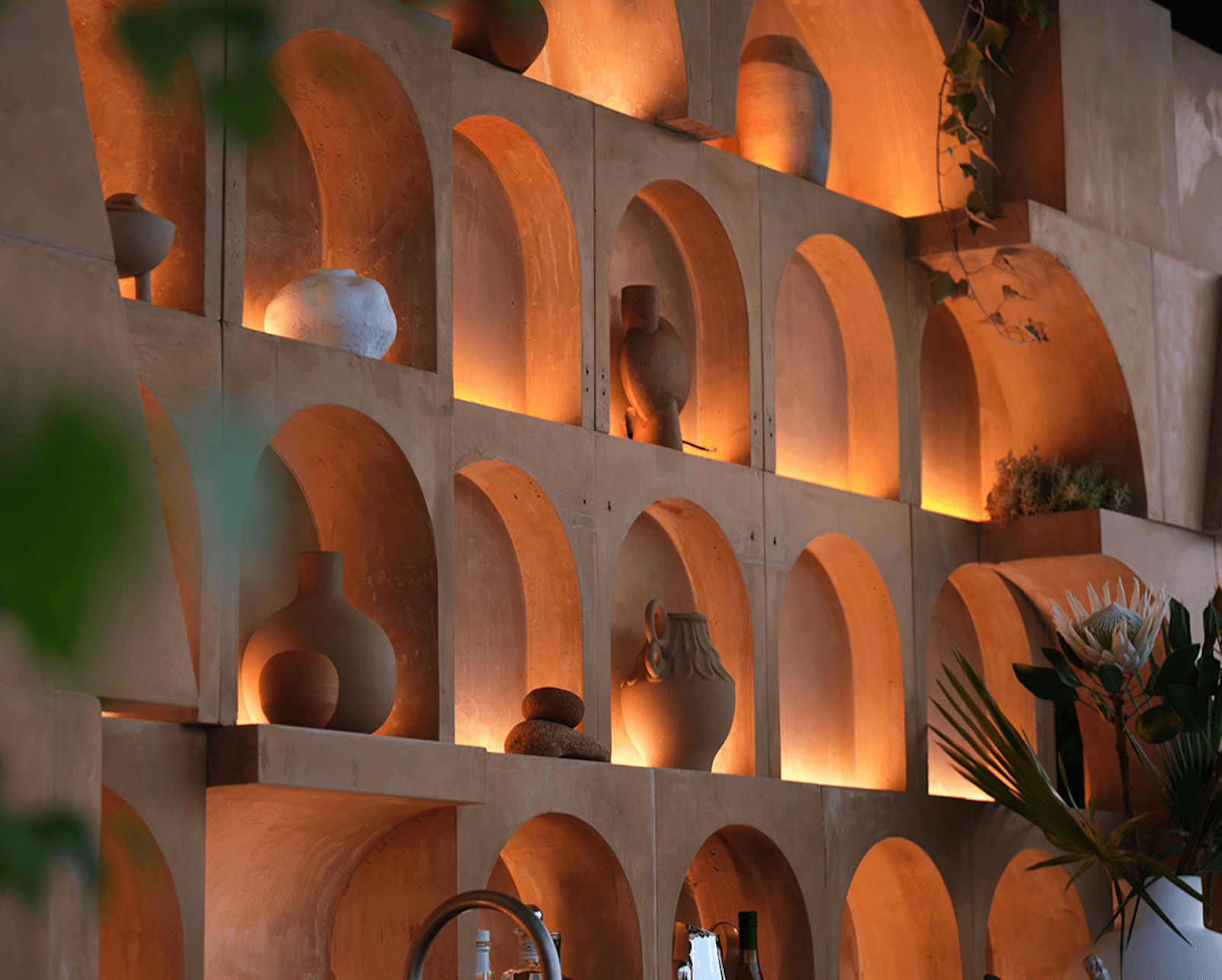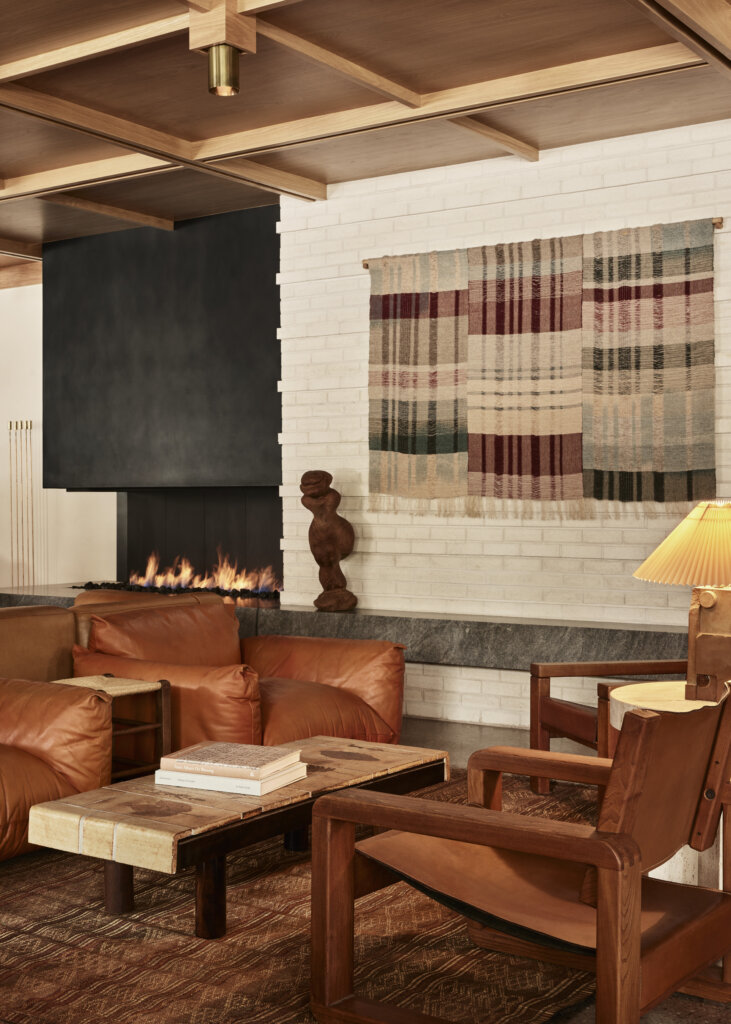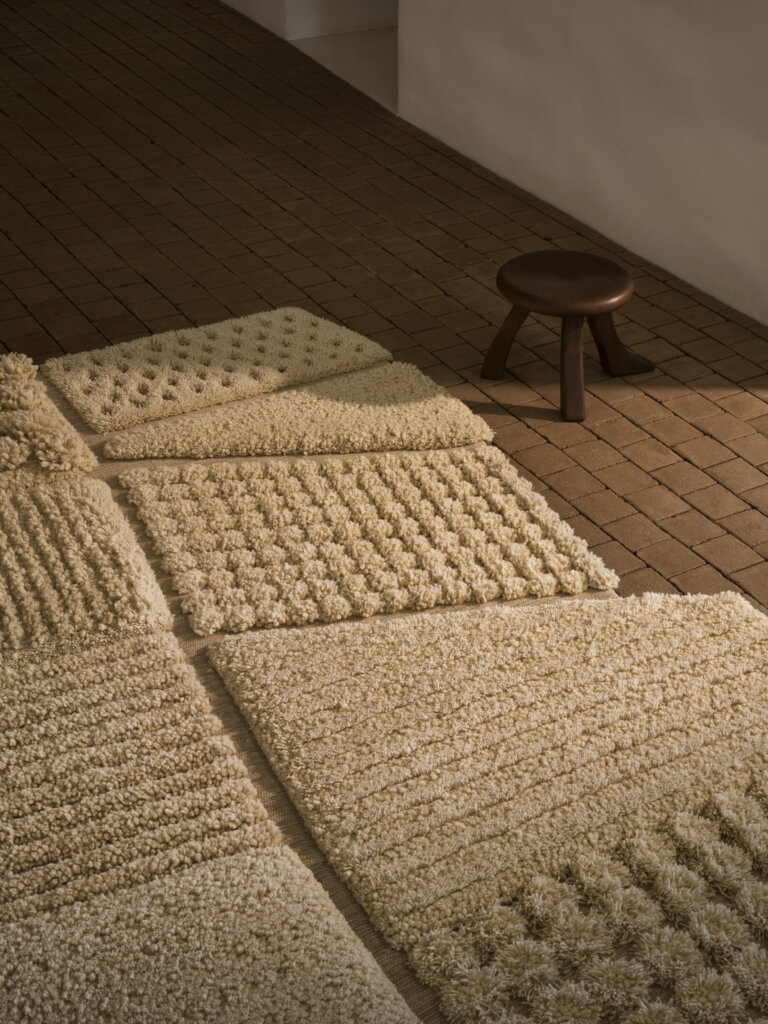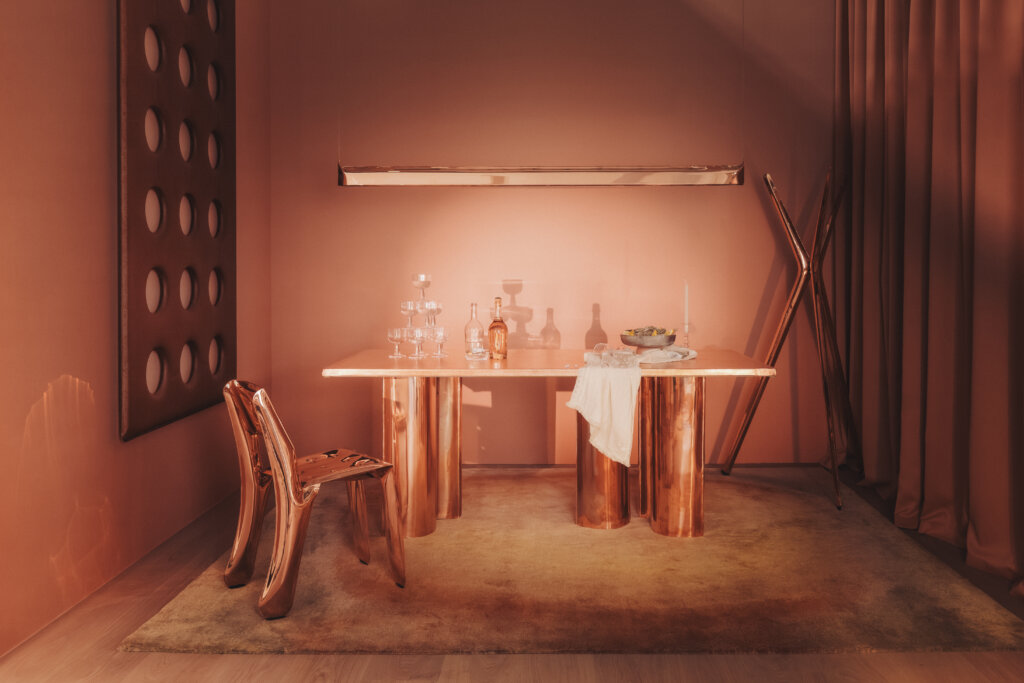For principal of Brooklyn based design studio Opiary, Robert Remer, the concept of Biophilia should be understood as much more than just haphazardly installed green walls. For him, it’s about fundamentally reconsidering how we, as humans, commune with nature. This central preoccupation has critically informed the furniture design and custom installation practice’s approach to material research, shape-finding, and production.
A long-time fixture of ICFF, Opiary is known for its deft transformation of concrete, turning the readily available building-construction material into idiosyncratic furnishings that formally translate the inherent structures found in nature, those that are both organic and geometric.
(Image above: custom Spolia Kitchen installation in Chicago | photo curtsey of Opiary)
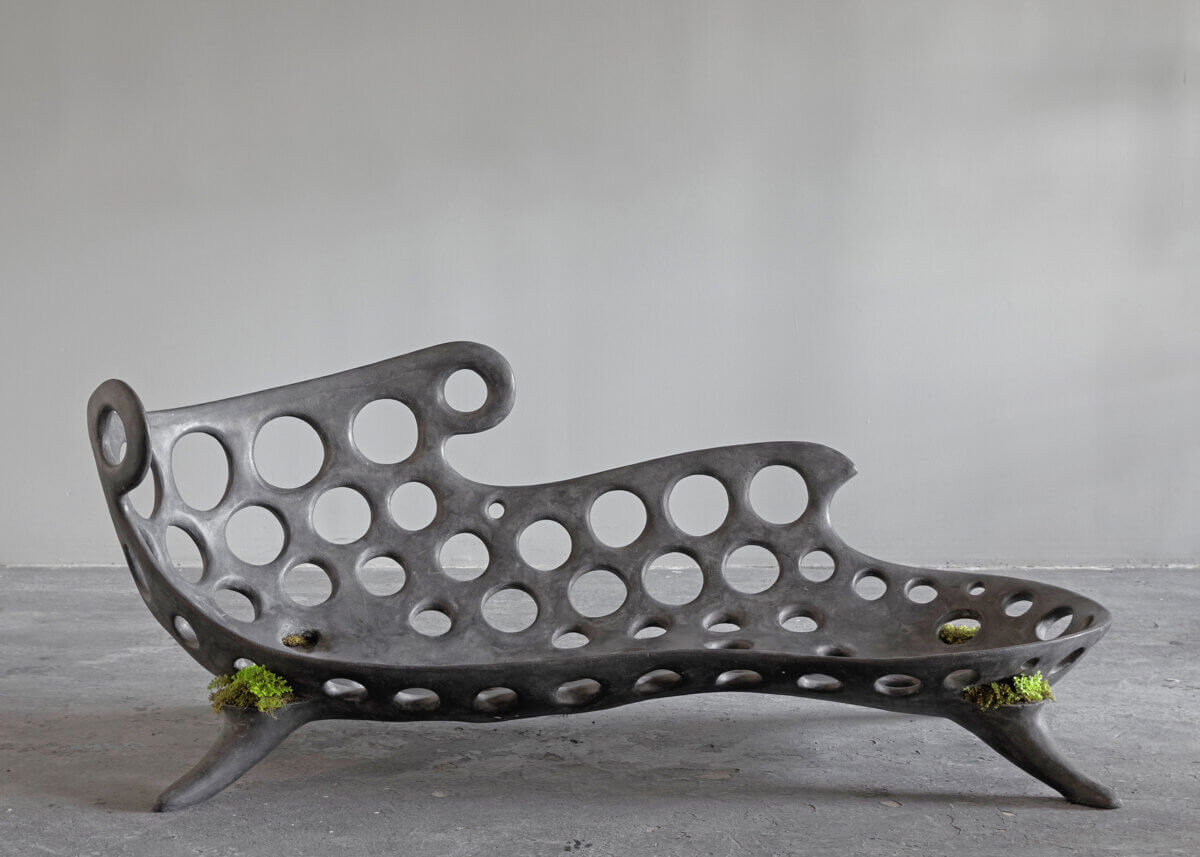
While the ever-iterated Drillium seating collection is defined by its distinctive membrane composition, inspired as much by bird bones as aircraft assembly, the modular Spolia planter system is far more rectilinear. It’s no less primordial, essential, transcendant, and distilled.
For Remer, a trained architect and sculptor, it’s not about introducing iconographic, often superficial, evocations of nature within our interiors but rather, harnessing its intrinsic qualities. The use of concrete, a particularly malleable aggregate, is not just reflective of his and his team’s desire to bring the outdoors inside but also create intrinsically natural shapes that couldn’t be achieved in wood or metal.
Because of Opiray’s mono-material approach, there’s no superfluous detail. Almost every aspect of a design serves a function, whether that be to ergonomically cradle the body or hold potted plants.
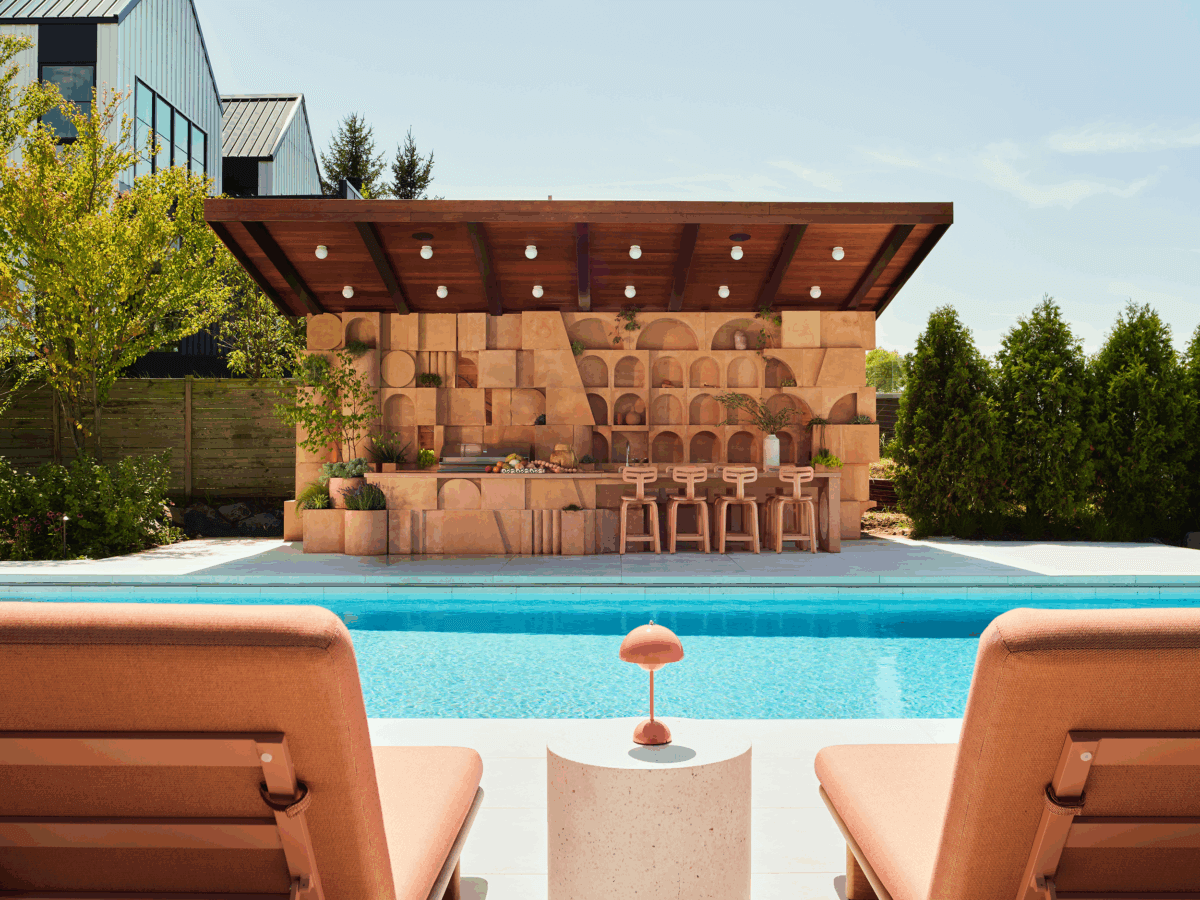
“Our ethos has deepened over the last few years,” Remer says. “The core mission of bringing people and nature together through design has become more critical than ever, demonstrating increasing relevance in the current world.”
For him, it’s important that furniture and even architectural finish root us back in the essential power of our innate surroundings. This is especially true given how digital and disconnected almost every other facet of our lives have become.
With some of the vastly different yet intrinsically linked signature collections (Drillium for example) now part of the newly coined Opiary Heritage offering (no longer being developed), Remer and his team are formulating new series; finding fresh ways to express Opiary’s central mission.
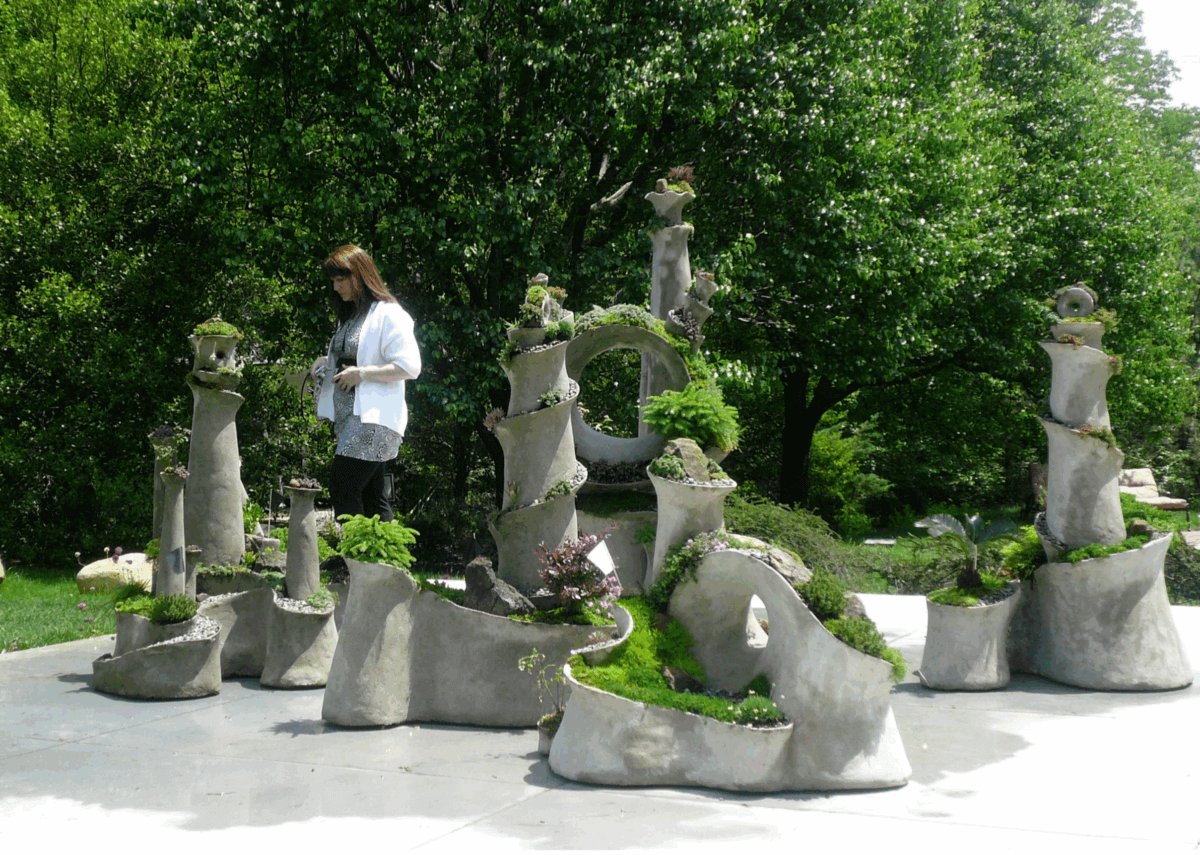
“Spolia and the Concrete Cloud bench are evolving based on the needs of architects and designers, and we see significant untapped potential there,” Remer adds. “Specifically, our infinitely scalable custom organic concrete bench planters are proving effective in solving multiple design challenges.”
Much of what the studio has developed, since it was founded in 2012, stemmed from some form of necessity: a site specific solution for one the custom build-outs they’ve carried out but with wider applicability as a product.
“We have been extremely fortunate to have our work featured in several highly public locations over the last two years, including a major installation for the Bank of America headquarters in Bryant Park, NYC, and another for a Vacheron Constantin experience center in the Miami Design District,” Remer says. “This is in addition to several large-scale hospitality and residential projects.”
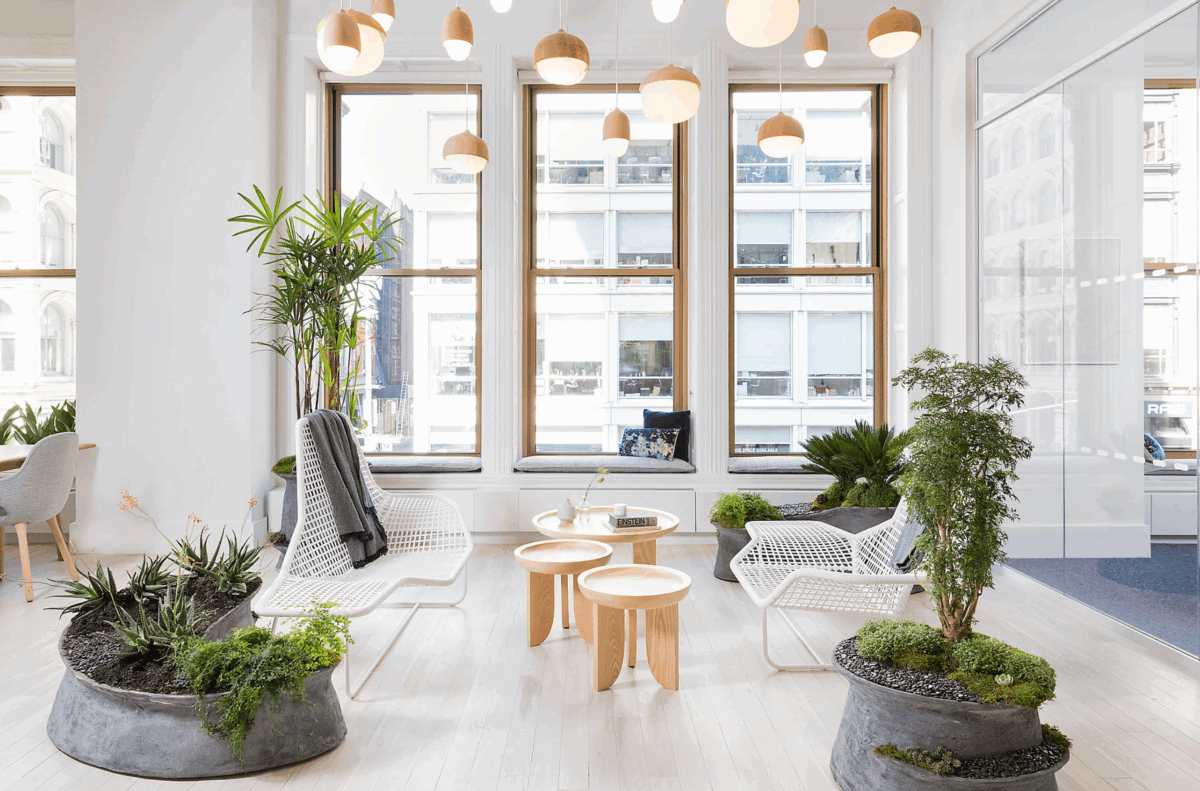
ICFF has been one of Opiary’s most important platforms. “We are working on larger and larger commissions, and our consistent exposure at ICFF has been crucial in connecting us with architects and designers,” Remer concludes. “This collaboration with creative partners is helping us push and develop our company’s capacity. It’s a dance we do with our designers and architects, and ICFF as one of the most important balls in the Americas.”
Visit the Opiary website >>>
Follow Opiary on Instagram >>>
More from ICFF:
A Welcome Home: Discoveries and Inspiration at Design Week México 2025
Designer profile: Sara Shrem
